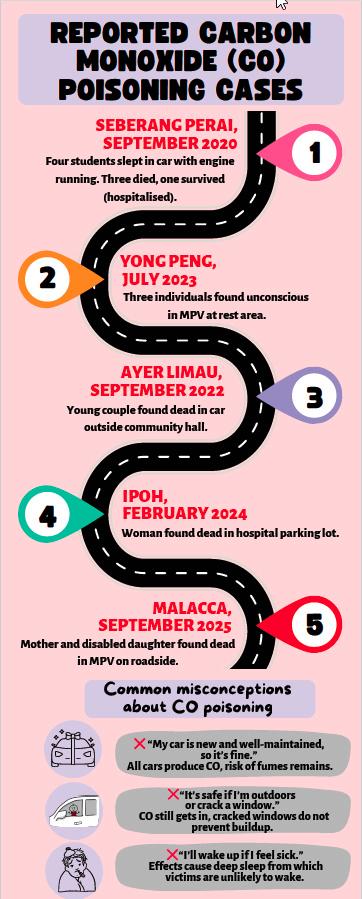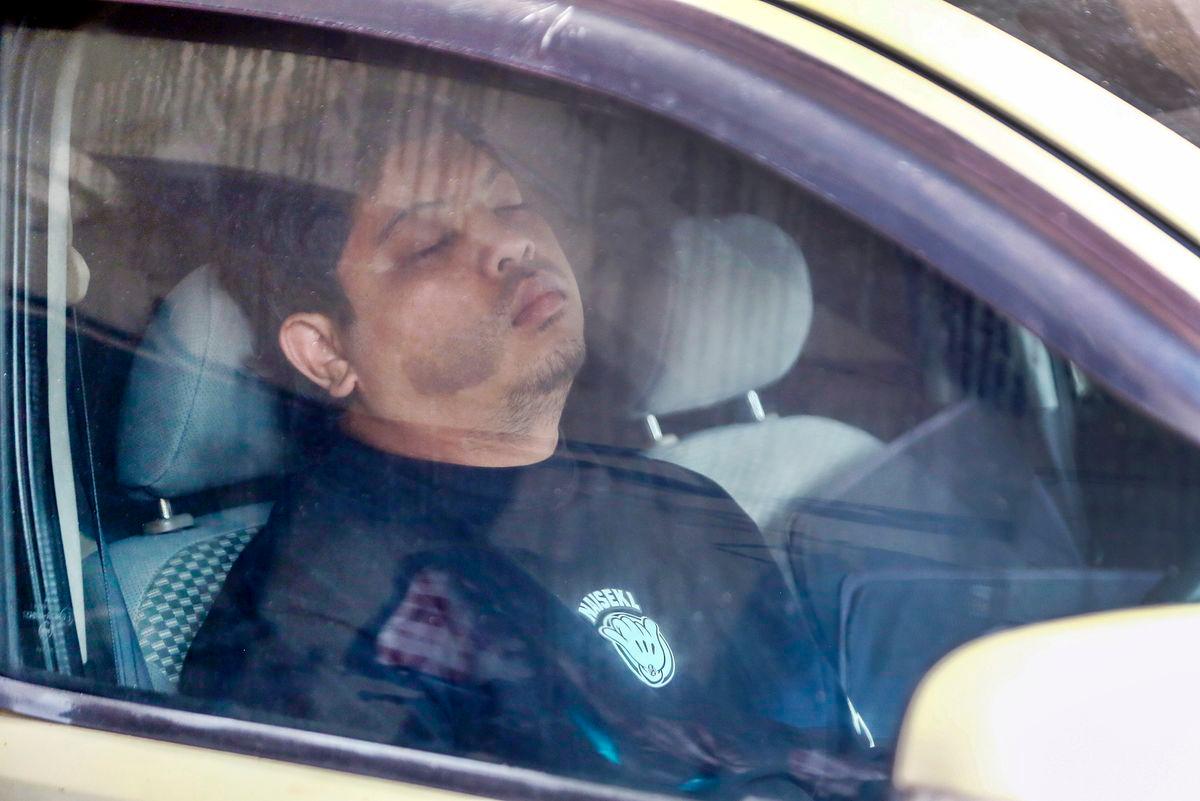PETALING JAYA: Invisible and deadly, carbon monoxide (CO) is among the most overlooked vehicle hazards, a colourless and odourless gas that experts say could cause death without any indication of danger.
The mortal risks were highlighted last week when a 57-year-old woman and her disabled daughter, 25, were found dead in their parked vehicle in Malacca. They are believed to have succumbed to CO poisoning after falling asleep with the air conditioning running.
Universiti Putra Malaysia Road Safety Research Centre head associate professor Dr Law Teik Hua told theSun that CO poisoning remains a serious yet under-recognised risk, particularly when people leave their engines running in stationary vehicles.
“This is extremely risky and life-threatening. CO in vehicles comes from engine exhaust that can leak into the cabin, unlike home air conditioners, which do not produce the gas. The danger arises only if there are fuel-burning appliances nearby that leak the gas,” he explained.
Law added that while CO is normally vented through the exhaust, a car left idling can draw emissions back into the cabin via the air intake, usually located at the base of the windscreen.
He cautioned that in enclosed spaces or if the exhaust system is damaged, the gas can accumulate rapidly to lethal levels.
“The gas binds to haemoglobin in the blood up to 250 times more effectively than oxygen, depriving the body of oxygen at the cellular level. Concentrations can become life-threatening in less than 10 minutes,” he said.

Risk factors include faulty exhaust systems with rust holes, cracks or loose connections, leaky door seals or floor pans that channel fumes inside and blocked tailpipes caused by snow, mud or even a trailer hitch, which force gases back into the vehicle.
He added that a poorly tuned engine running too “rich” with excess fuel can also produce higher levels of CO.
He stressed that those who must sleep in a car should avoid running the engine.
Instead, he advised parking in a safe, well-ventilated area such as an open rest stop, using the battery to power the fan without air conditioning and cracking windows slightly to allow cross-ventilation.
“Dressing appropriately for the weather is equally important. For regular car camping, investing in a portable power station to safely run a fan or electric blanket is advisable.”
Universiti Kebangsaan Malaysia public health medicine specialist Prof Dr Sharifa Ezat Wan Puteh echoed the warning, adding that CO poisoning can be fatal even in seemingly safe situations.
Citing data published by research expert Amanda Siddharta of data portal Statista, she pointed out that Malaysia recorded about two million metric tonnes of CO emissions in 2022, an increase from the previous year.
“Many people remain unaware of the dangers of CO exposure while sleeping in a car with the engine running.
“The risk is even higher when sleeping as people are less aware of the danger,” she explained.
Sharifa said early symptoms of poisoning include headache, dizziness, palpitations, nausea, vomiting, drowsiness, breathlessness and mild confusion, which can escalate to coma, convulsions, blurred vision, blindness and death.
She added that babies, infants, the elderly and those with chronic heart or respiratory conditions, anaemia or other breathing problems are especially vulnerable, stressing the importance of regular vehicle checks and proper maintenance.









